ATF OP-ED IN THE DAILY CALLER
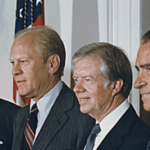
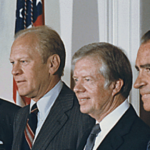
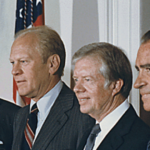
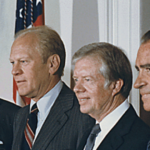
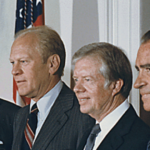
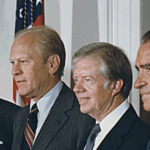
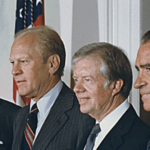
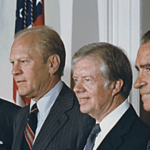
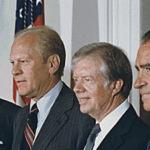
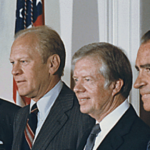
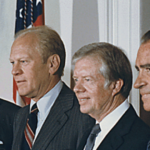
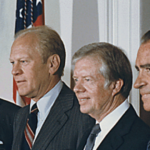
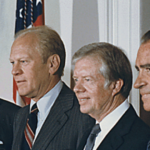
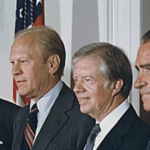
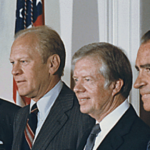
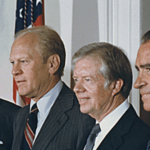
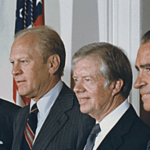
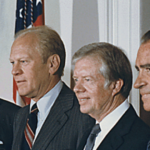
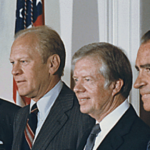
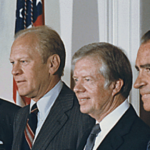
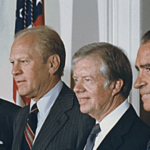
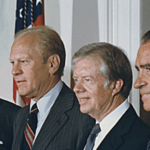
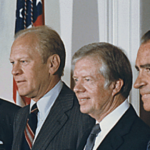
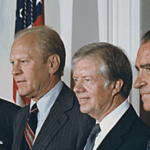
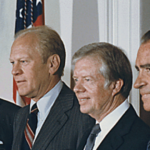
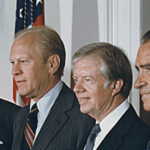
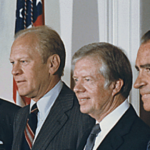
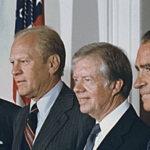
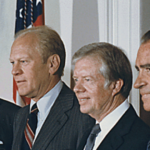
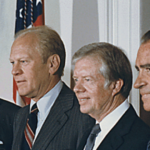
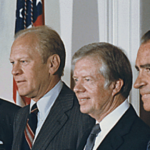
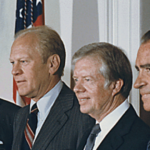
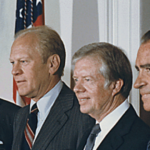
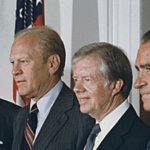
PIPES: How Richard Nixon Changed The Post-Presidency
Historians debate whether Richard Nixon deserves to be remembered as a great president, but there is no debate about the fact that he was a great former president.
When Nixon left the White House in August 1974, there was no template for what to do next. Since presidents typically assume office late in life, few of them have lived long out of office. With the exception of Herbert Hoover, twentieth-century presidents up until 1974 didn’t do much of consequence upon leaving office. Like Washington following the example of Cincinnatus, most chose to quietly return to private life.
Nixon had no such option. Physically ill, financial desperate and legally vulnerable, he simply couldn’t afford to do enjoy retirement. For his health and for his sanity, he had to make the most of his remaining years. And did he ever.
The twenty years following Nixon’s resignation represent some of the most interesting and important years of his life. As I found in researching new materials for the book “After the Fall: The Remarkable Comeback of Richard Nixon,” Nixon’s post-presidency was even more active and far more successful than previously realized.
How so?
Nixon changed the post-presidency. In fact, in some ways he created the modern template for a former president. Facing likely disbarment, he knew he couldn’t support himself practicing law. Instead he spent years writing books on his area of expertise — foreign policy. And he gave speeches around the country and around the world. He also gained the trust of three presidents from both parties and became their trusted advisor. Most presidents since him have followed this exact path since leaving office — they have written books, hit the speaking circuit and tried to use their influence with their successors.
Nixon changed foreign policy. He didn’t just write books; he wrote books that mattered. He wrote books that important people read and thought about in important ways. Ronald Reagan read “The New War” and was encouraged by it to take a strong stance with the Soviets. But his greatest influence was exercised not in his books but in his candid private advice.
Nixon encouraged Reagan to pursue the Strategic Defense Initiative (SDI) but to offer to share the technology with Gorbachev. The former president argued that this would put this Soviets in a difficult position to say no. “I feel very strongly,” he wrote to the White House, “that the president could pull a real coup by formally offering at a summit meeting to mutually share with the Soviet Union the results of our research in our defensive outer space programs.” He was right. And Nixon was the first to suggest the very idea that Reagan used to outmaneuver Gorbachev — proposing to share SDI technology helped defuse the tension. SDI played a key role in getting the Soviets to agree to it the INF Treaty.
With Bush, Nixon privately went to China after the Tiananmen Square tragedy. Taking advantage of the good will for him among the Chinese leadership, he warned the Chinese to knock it off or Washington would get tougher on them. He helped defuse what could have been a debilitating international crisis for the Bush administration.
And with Clinton, Nixon urged the young president to move cautiously with Yeltsin and to help the fledging democracy grow.
inally, Nixon changed himself. He came to terms with all he had achieved and all he had lost. The conventional wisdom says he accidentally confessed to the Watergate coverup in TV interviews with David Frost. In reality, he and his staff had planned out what he would say about Watergate. It was a real apology but also an act of defiance: he apologized for moral failures, but never admitted to any legal wrongdoing.
Still, the moral failure weighed on him. And he dealt with it in his own way. When Hubert Humphrey, his opponent from the 1968 election, called to let him know he was dying, Nixon consoled his former rival. And after hanging up the phone, he told his aide: “I don’t care what it takes, but I’m going to his funeral. Start working on it.” The funeral marked Nixon’s first public appearance in Washington since Watergate. Ten years later he delivered the eulogy for Ohio State football coach Woody Hayes. “He was never satisfied with success and he was never going to be discouraged by failure,” Nixon said of Hayes, but he was also talking about himself.
When Reagan’s National Security Advisor, Bud McFarlane, attempted to kill himself, Nixon visited his old friend in the hospital. “You need an anchor,” Nixon told the recovering McFarlane, “your strong faith will take you through this.”
And after the dedication of his presidential library in 1990, Nixon told friends about the time his grandkids asked what they should call him. “You can call me anything,” he said. “because I’ve been called everything.”
It was a lifetime in the public eye, but some of Richard Nixon’s greatest achievements took place after he left the spotlight.
Kasey S. Pipes (@KSPipes) served as an aide to President George W. Bush and California Gov. Arnold Schwarzenegger. This column is excerpted from his new book, “After the Fall: The Remarkable Comeback of Richard Nixon.” (Regnery History; July 23, 2019).
The views and opinions expressed in this commentary are those of the author and do not reflect the official position of The Daily Caller.


